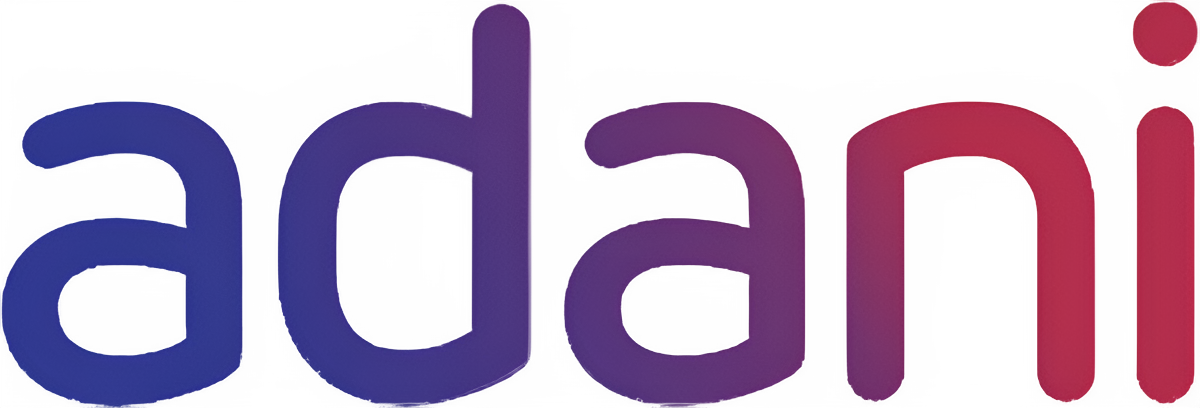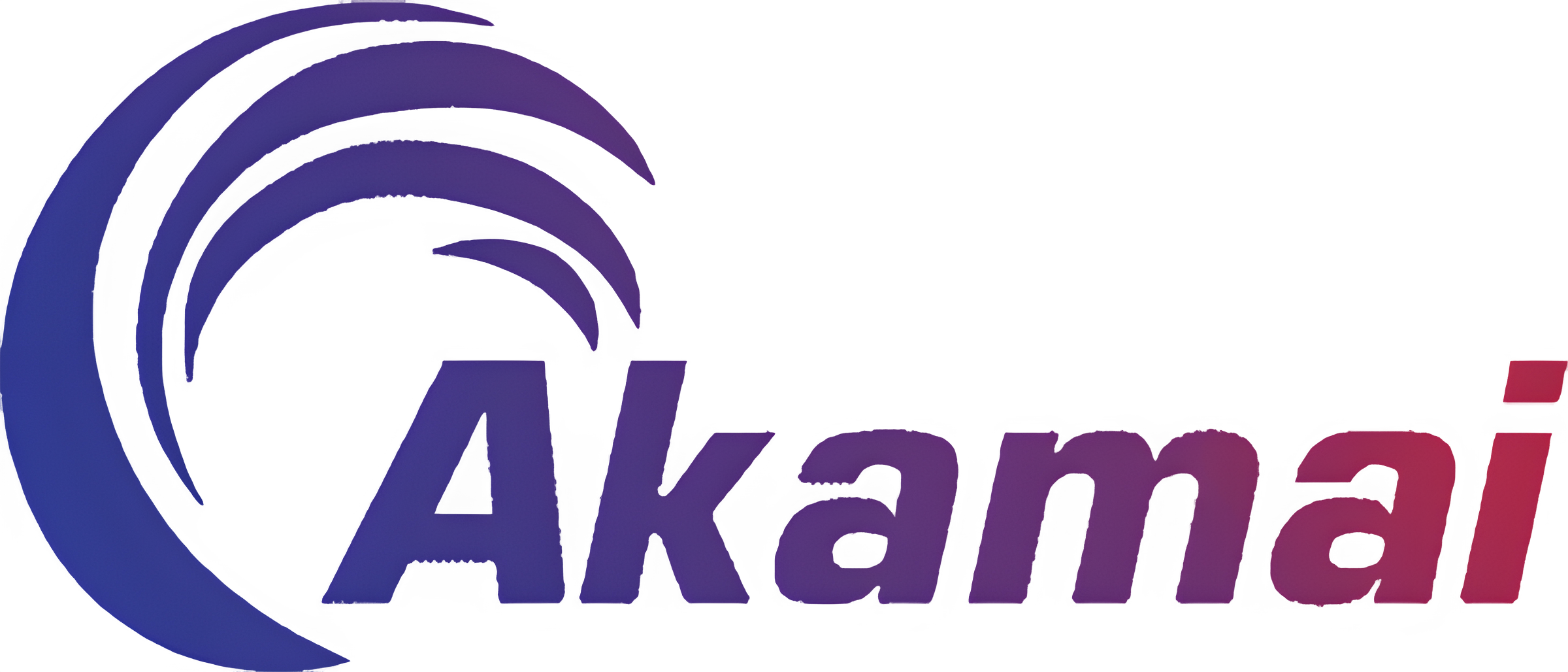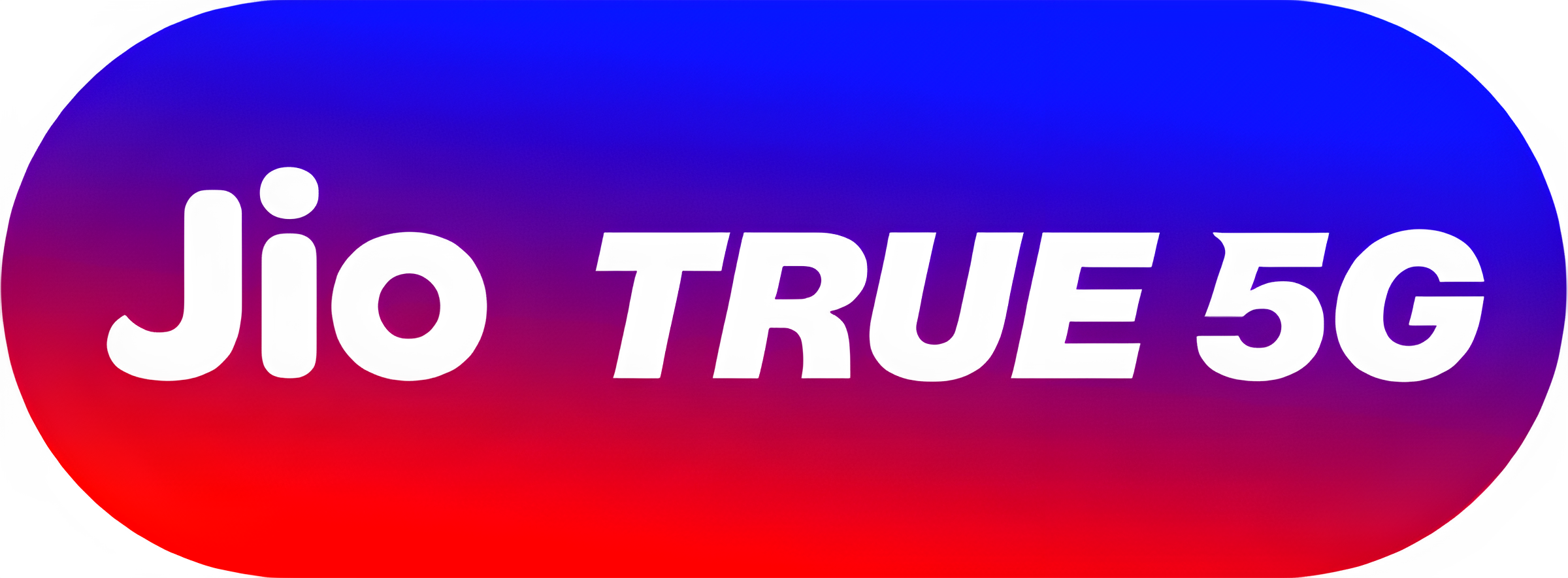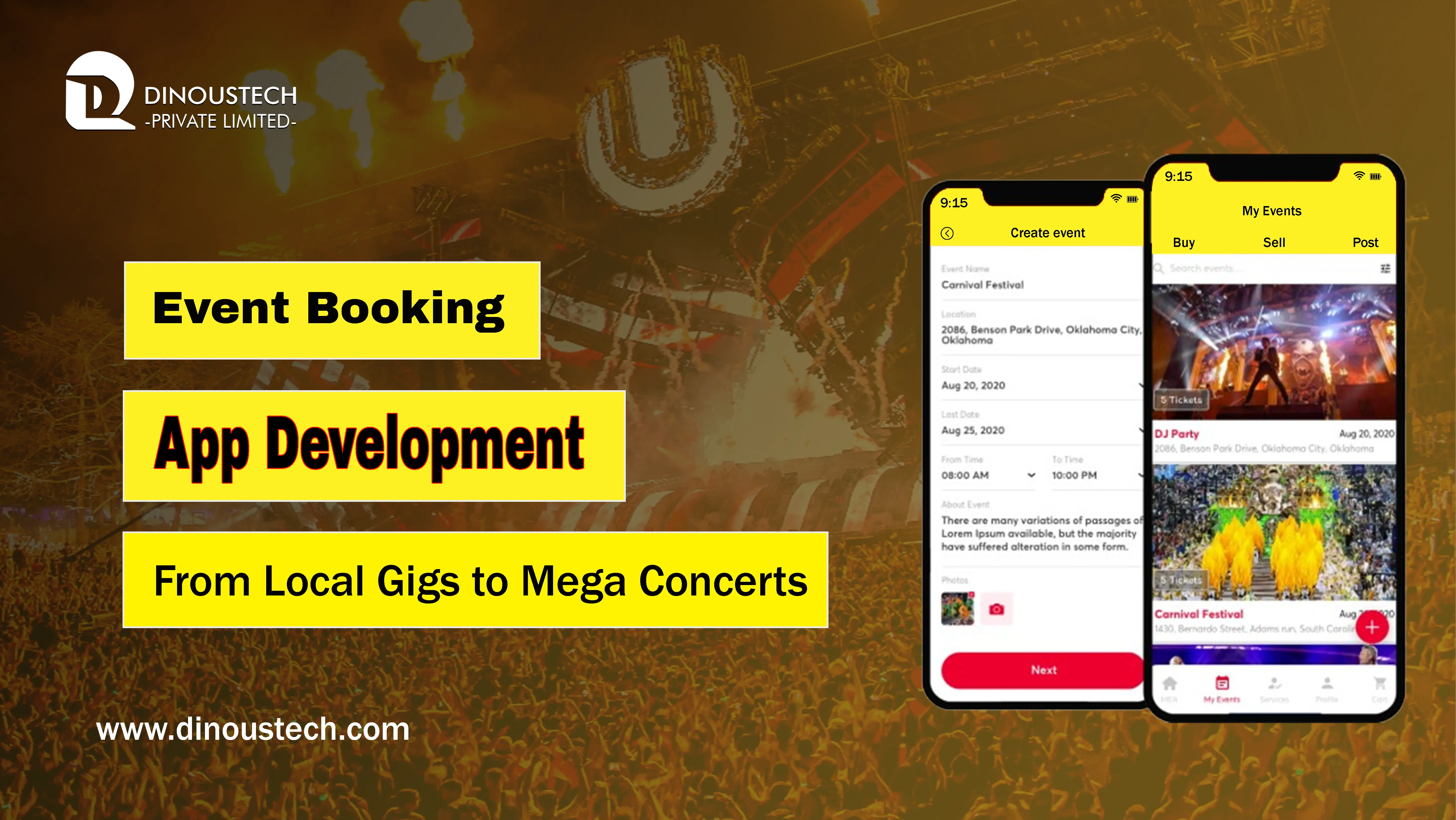Event Booking App Development: From Local Gigs to Mega Concerts
In an era where smartphones have become an indispensable part of daily life, the way people discover and attend events has transformed dramatically. Gone are the days when concert-goers queued at box offices or scoured multiple websites for ticket availability. Today’s audience expects a seamless, mobile-first experience that lets them find, book, and share events with a few taps. Whether it’s a neighbourhood open mic night or a sold-out stadium concert, an event booking app streamlines the entire process—from browsing upcoming shows to validating tickets at the door.
At Dinoustech Private Limited, known as the best software development company and best mobile app development company, we understand the intricacies of building robust ticketing platforms. Our expertise spans from partnering with an affordable web design company to enhance user interfaces to leveraging a custom website development company to create responsive event portals. In this comprehensive guide, we’ll explore how to develop an event booking app that caters to local gigs and scales up for mega concerts, ensuring both organizers and attendees enjoy an exceptional experience.
The Evolution of Event Booking
Over the past decade, live events have shifted from analog to digital. Early ticketing websites laid the groundwork, but mobile apps have revolutionized accessibility and convenience. Today’s users not only exhibit a preference for mobile ticket purchases but also demand features like dynamic seat selection, real-time availability updates, and digital wallet integration. High-volume search terms such as “ticket booking app” and “event ticketing app” reflect the market’s appetite for instant access. Event organizers, from local community centers to large-scale festival promoters, benefit immensely from apps that automate registration, payment processing, and attendee management. As the industry grows, the demand for specialized event booking app development has accelerated, creating opportunities for innovative companies to deliver differentiated value.
Why Businesses Need a Custom Event Booking App
For many venues and promoters, off-the-shelf ticketing solutions offer limited flexibility. Branded experience, tailored workflows, and unique promotional campaigns often require a bespoke approach. A custom-built app not only integrates seamlessly with existing back-end systems, such as CRM and inventory databases, but also aligns with specific branding requirements. For example, a local theater might wish to highlight its community-driven ethos, while a global concert promoter needs advanced geolocation features to target fans. Partnering with a leading software development company ensures that your app’s architecture is scalable, secure, and easily extensible for future enhancements. At Dinoustech, we craft tailor-made event booking solutions that accommodate complex pricing models, multi-level access controls, and real-time sales analytics, setting the stage for sustained growth.
Core Features of an Effective Event Booking App
An ideal event booking platform must cater to users and organizers alike. Attendees expect a smooth discovery process—clear event listings, filters by date, location, or genre, and comprehensive event details including images, performer bios, and seating charts. Once they find a suitable show, the booking flow should allow seat selection (for reserved seating), ticket type options, and multiple payment methods. Wallet integrations—such as Apple Pay, Google Pay, or region-specific e-wallets—reduce friction and cart abandonment rates.
For organizers, a robust dashboard provides deep insights: real-time ticket sales, demographic data, and marketing funnel analysis. Promotional tools—discount codes, referral incentives, and social sharing widgets—help drive engagement. Backend functionalities include automated email confirmations, integration with SMS gateways for reminders, and refund management workflows. By collaborating with a custom website development company, these features extend to a companion web portal, ensuring consistency across devices. Dinoustech’s experience as the best mobile app development company allows our team to weave together front-end and back-end capabilities seamlessly, delivering a holistic solution.
Designing an Intuitive User Experience
User experience (UX) plays a pivotal role in conversion rates for event booking. A cluttered interface or lengthy checkout flow can discourage even the most enthusiastic fans. Dinoustech’s UX/UI designers, working closely with an affordable web design company, focus on minimalist layouts, large touch targets, and clear navigation. The homepage might showcase featured events in a dynamic carousel, followed by a searchable list with thumbnail images. Event detail pages provide concise yet complete information—date, time, venue map, ticket prices, and seating availability—without overwhelming users.
Interactive seat maps allow users to zoom in on available spots, while color-coded pricing levels guide decision-making. Progress indicators in the checkout flow keep users informed of steps remaining, minimizing drop-offs. Post-purchase, digital tickets appear in a dedicated wallet section, accompanied by options to share with friends or add to calendar apps. Push notifications alert users about upcoming events, last-minute ticket deals, or changes to schedules. By prioritizing low-latency interactions and accessible design, Dinoustech ensures that every tap and swipe feels natural, maintaining user satisfaction and loyalty.
Choosing the Right Technology Stack
Building a scalable event booking app requires careful selection of technologies that deliver performance, security, and maintainability. On the front end, cross-platform frameworks—such as React Native or Flutter—accelerate development, enabling single-code deployment for iOS and Android while preserving near-native performance. For web components, modern JavaScript frameworks like React.js or Vue.js allow dynamic, responsive portals that mirror the mobile experience.
On the backend, microservices architectures operated on cloud platforms—AWS, Google Cloud, or Azure—provide auto-scaling and high availability, essential for handling sudden ticket sale surges during major event launches. Node.js or Python (Django/Flask) remain popular for building RESTful APIs that mediate between the mobile front end and databases. Relational databases—PostgreSQL or MySQL—store structured data such as user profiles, event details, and transactions, while NoSQL solutions—MongoDB or DynamoDB—manage unstructured logs and real-time analytics data. Implementing caching layers with Redis or Memcached ensures rapid data retrieval for commonly requested queries, such as top-selling events or seat availability.
Real-time communication features—like chat support or live event updates—rely on WebSockets or Firebase Realtime Database. Authentication flows leverage OAuth2 or JWT tokens to secure user sessions. Dinoustech’s seasoned developers, recognized as a best software development company, select these components based on project scope, expected user volume, and integration requirements, ensuring optimal performance and future-proof scalability.
Integrating Payment Gateways and Ticket Validation
Secure, frictionless payment processing is paramount for any event booking app. Dinoustech integrates with leading payment processors—Stripe, PayPal, Braintree, and regional gateways—to support credit cards, debit cards, and digital wallets. PCI-DSS compliance is maintained by ensuring that sensitive card data never resides on your servers; instead, tokenization methods protect user information.
For ticket validation at entry points, QR codes or barcodes generated in-app enable swift scanning by venue staff. Integration with third-party scanning hardware—Bluetooth-enabled handheld scanners or camera-based verification—verifies ticket authenticity and updates backend records in real time, preventing double entry or fraudulent access. Offline validation capabilities ensure that entry processes continue smoothly even if connectivity fluctuates. Additionally, implementing e-ticket sharing features via in-app links or emails allows attendees to forward tickets to friends, with built-in controls to prevent unauthorized duplication. Dinoustech’s expertise as a best mobile app development company ensures that these integrations remain reliable, secure, and easy to use for both event organizers and attendees.
UX/UI Best Practices for Event Discovery
Discoverability is crucial—users should find relevant local gigs and mega concerts quickly. Streamlined search capabilities with autocomplete suggestions guide users as they type “rock concert,” “music festival,” or “stand-up comedy.” Location-based filters—powered by GPS or manual city selection—display nearby events. Category-based browsing segments listings into “Music,” “Comedy,” “Sports,” or “Arts,” catering to diverse interests. Highlighting “Trending Events” or “Recommended for You” based on past engagement leverages machine learning models to personalize suggestions.
Ticket pricing information, including early bird discounts and VIP packages, appears prominently. Countdown timers for limited-time offers create a sense of urgency that drives conversions. User reviews and star ratings for past events or venues help establish credibility. Incorporating social proof—images from previous shows, influencer endorsements, or user-generated content—enhances trust. Dinoustech collaborates with an affordable web designing company to ensure that all these elements appear coherently across mobile and web interfaces, fostering a consistent brand experience.
Marketing and Growth Strategies
Launching an event booking app requires a comprehensive marketing plan to acquire and retain users. App Store Optimization (ASO) is the first step: identify and include high-volume keywords—“event booking app,” “buy concert tickets,” “local event tickets”—in the app name, subtitle, and description to improve visibility. Compelling visuals—an engaging app icon, high-resolution screenshots showing the booking flow—encourage downloads.
Social media campaigns on platforms like Facebook, Instagram, and Twitter help reach event-goers in specific locales. Geotargeted ads can promote hot ticket listings or upcoming festivals to relevant age groups or interest segments. Partnering with local venues, artists, and promoters for cross-promotion boosts credibility. Content marketing—blogs and vlogs about “top music festivals 2025” or “how to get VIP tickets for concerts”—drives organic traffic to your landing page. Email newsletters to registered users inform them of new events, flash sales, and exclusive VIP opportunities, encouraging repeat engagement.
Encourage word-of-mouth virality by incentivizing referrals—offering discount codes or loyalty points for users who invite friends. Gamification elements—such as collecting badges for attending different genres of events—can foster community and drive deeper app engagement. Dinoustech’s growth strategists design and execute these campaigns, ensuring your app gains traction rapidly and sustains user interest.
Monetization Models
To monetize an event booking app, several revenue streams exist. The most common is a ticketing fee, charging a small convenience fee on each ticket sold. This aligns revenue with platform usage and scales as event volume grows. Subscription models—targeted at frequent event-goers—offer early access to ticket sales, exclusive discounts, or VIP seat reservations for a monthly or annual fee. Sponsored listings or featured event placements—where organizers pay for premium positioning in search results—generate additional advertising revenue. Partnerships with local businesses—food vendors, merchandise sellers, or ride-share companies—enable affiliate marketing, with a commission on referrals.
For event organizers, offering white-label solutions—where they can brand their app interface and domain—provides another revenue source. Corporate packages for employee engagement events, conferences, and trade shows drive B2B opportunities. Dinoustech’s financial modeling experts analyze market trends and user segments to recommend optimal monetization strategies tailored to your app’s target demographic and competitive landscape.
Security and Compliance
Handling user data—profile information, payment details, and personal preferences—demands rigorous security practices. All data in transit must be encrypted using TLS/SSL protocols, while sensitive information stored on servers requires AES-256 encryption. Implementing strong authentication methods, such as OAuth2, multi-factor authentication (MFA), or biometric logins, prevents unauthorized access. For payment processing, partnering with PCI-DSS compliant gateways ensures credit card data never touches your servers, reducing compliance burdens.
Event apps must also handle user privacy preferences and adhere to regional data protection laws—GDPR in Europe, CCPA in California, and local privacy regulations worldwide. Offering clear privacy policies, opt-in consent flows, and data deletion tools builds user trust. Regular security audits—conducted by a best software development company—and penetration tests identify vulnerabilities early. By embedding security at every layer—from code reviews to infrastructure monitoring—Dinoustech ensures your event booking platform remains robust and compliant.
Scalability and Performance
As your user base and event listings expand, the app must scale gracefully to handle surges, such as when tickets for popular concerts go on sale. Dinoustech recommends deploying on cloud platforms—AWS, Google Cloud, or Azure—with auto-scaling groups to dynamically adjust compute resources. Microservices architectures, containerized with Docker and orchestrated by Kubernetes, allow individual components, such as search, booking, and payment, to scale independently. Implementing caching layers (Redis, Memcached) for frequently accessed data—event details, seating maps, and user profiles—reduces database load and accelerates response times.
Load balancers distribute incoming traffic across multiple server instances, ensuring no single point of failure. Performance monitoring tools—New Relic, Datadog, or Prometheus—offer real-time metrics on CPU usage, memory consumption, and API latency, enabling rapid identification of bottlenecks. Database sharding and read replicas maintain optimal query performance during peak times. By architecting for high concurrency and fault tolerance, your app delivers a consistent user experience even under heavy demand.
Post-Launch Maintenance and Continuous Improvement
Launching the app is just the beginning. Continuous maintenance ensures long-term success. Regular updates—adding new features such as loyalty programs, seat upgrades, or social chat rooms—keep users engaged. Monitoring user reviews and in-app feedback uncovers usability issues and informs product roadmaps. Security patches and dependency updates mitigate emerging vulnerabilities. Performance optimizations—index tuning, code refactoring, and CDN enhancements—maintain fast load times.
Dinoustech’s support teams offer dedicated service level agreements (SLAs) for bug fixes, feature requests, and uptime guarantees. Customer support—through in-app chat or helpdesk integrations, resolves user queries swiftly, enhancing satisfaction. A/B testing variants of UI elements, promotional banners, or booking flows helps identify what resonates most. By fostering a culture of continuous improvement, your event booking app stays ahead of competitors and adapts to user needs over time.
Conclusion
Developing a digital event booking app that serves both local gigs and mega concerts demands a careful blend of user-centric design, robust technology, and strategic monetization. From essential features—artist directories, seat selection, payment integration, and automated reminders—to advanced capabilities like real-time analytics, push notifications, and loyalty rewards, the app must address the needs of both attendees and organizers. Selecting the right technology stack—leveraging cross-platform frameworks, cloud-native microservices, and secure APIs—ensures performance and scalability.
Partnering with experienced teams—a custom website development company, an affordable web designing company, the best mobile app development company, and the best software development company—is paramount. At Dinoustech Private Limited, our multidisciplinary experts guide you through every step: requirement gathering, meticulous UX/UI design, agile development, rigorous QA, and ongoing support. As the live events landscape continues to evolve, now is the time to embrace digital transformation and create an app that turns every ticket purchase into a seamless, memorable experience. Reach out to Dinoustech today, and let’s bring your vision of a next-generation event booking platform to life.

















